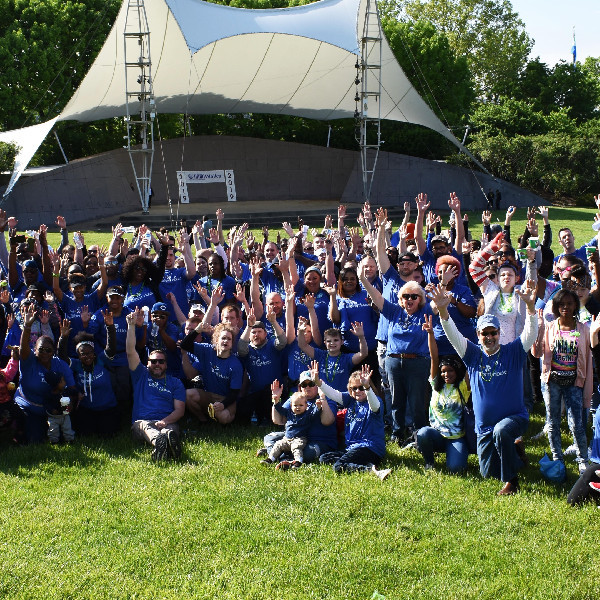Talbert House services running — on limited capacity; Fatherhood event canceled
By Madeline Anderson
“Resilient” is the word Teri Nau, Community Relations Director at Talbert House, uses to describe how the staff, clients and families they serve have responded to challenges from COVID-19.
What started as a halfway house 55 years ago to help homeless men re-enter society has become a cohesive agency dedicated to services that reflect the complexity of building a stronger community. Talbert House integrates services for addiction, community care, community corrections, housing and mental health among many different people — addicts, felons, veterans, struggling families, kids — in all aspects of their lives. Their mission is to empower adults and families in the city and surrounding counties to live healthy, safe and productive lives.
“Most of us, when we really think about it,” she notes, “have known somebody who either struggles with addiction or a mental health issue or depression. Suicide has touched many of our lives. And I think that’s the call to people — why they like this mission. It’s a land of not just second chances, but third, fourth, fifth and sixth chances. People deserve them.”
Over the last few months, with Ohio shuttering many doors in efforts to social distance for public safety, nonprofit organizations have shouldered much of the burden.
Some of its service are still able to run on a limited capacity. Those in residential care can’t hold group meetings, but they still have a place to live. Outpatient mental health and addiction services are adapting to telehealth for counseling and doctor visits. For felons who need transitional housing and employment opportunities, Nau says the leadership of the state and the Ohio Department of Rehabilitation and Corrections has been phenomenal.
“Everybody’s trying to make it work,” she says. “[It’s] a whole new way of delivering services.” The organization has always had a robust, active variety of volunteers. Board members serve on committees and help with strategic planning. Young professionals have an “Ambassadors” advocacy group to volunteer at programs such as the annual Camp Possible, for kids struggling with behavioral issues.
Some services require routine, long-term volunteers who must be over 18 and abide by HIPAA requirements, but there are usually numerous short-term group volunteer opportunities, such as family-focused barbecue picnics, craft nights or fundraisers. Nau says those events are an energetic change of pace for both clients and staff.
Unfortunately, these opportunities to connect face-to-face have disappeared. Much of Talbert House’s programming relies on in-person volunteering, with over 24,000 clients served directly in 2019. Those one-time fundraisers and events can’t continue.
One major event, the annual Fatherhood Community Celebration at Sawyer Point, had to be canceled.
“[That decision] broke all our hearts,” Nau exhales.
There are many programs that typically meet at schools for workforce development, behavioral health or bullying prevention presentations. Other programs that normally inspire and “fill up” Nau, such as LEAP, an adult day program for those with severe mental illness, can’t meet as usual, either. The loss of normal programming is a tough blow to these adults who often experience isolation without their community.
The unfortunate irony is that side effects from reduction of services only increase the need for those services. Job loss, homeschooling, loss of structure and loneliness can be serious impediments to healthy lives and families.
“Isolation is no way to deal with addiction,” Nau says. “We have people in permanent supportive housing who need us to reach out more than ever, but we’re doing it at a distance or through phone calls, making sure they’re okay.”
The way it delivers services is changing, but Talbert House is pushing forward. Though quarantine procedures have always been in place to prepare for bouts of flu, they’ve had to adapt to a much more extreme scenario.
Most importantly, losing the ability to connect one-on-one, for volunteers and clients to bond and share their lives and similarities, has been an especially difficult consequence of the virus.
“Right now, people really want to connect with somebody and help somebody. And it doesn’t all have to be financial . . . We’re looking at people just to give, at this time when they can’t come, and they can’t do things that they want to do,” Nau encourages.
Talbert House is always open to new ideas for ways to volunteer. You can send notes of encouragement, short videos and emails that the staff will pass along to struggling clients. You can volunteer for the suicide crisis hotline. Or, give a gift card to appreciative, hard-working staff members.








